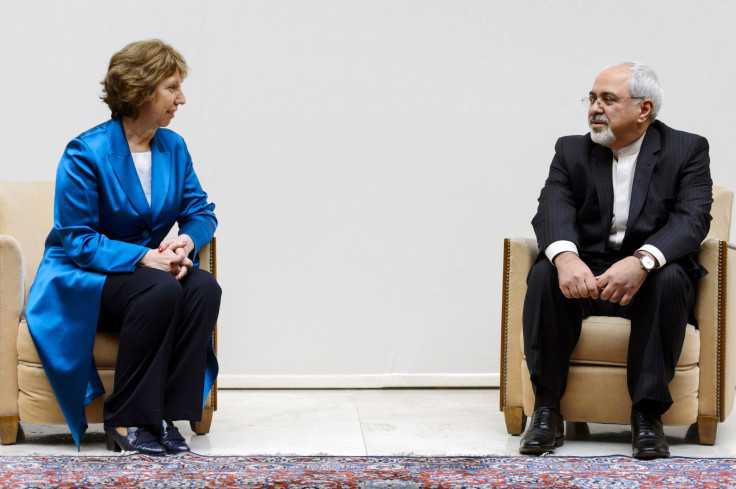Obama Administration Mulls Easing Iran Sanctions After Detailed Nuclear Deal Proposal From Tehran

President Barack Obama's administration is considering easing sanctions on Iran after its Foreign Minister Javad Zarif presented a road map to strike a nuclear deal with some of the world’s biggest economies, even though the United States' key ally, Israel, is pressuring Washington against adopting a softer stance against the Middle Eastern nation, saying it would be a “historic mistake.”
The proposal to revoke a freeze on Iran’s overseas assets in installments, instead of withdrawing sanctions altogether, is aimed at avoiding a political and diplomatic backlash at home and from key allies, a senior administration official said in Geneva on Wednesday. However, the decision from Congress, which has actively pushed for tighter sanctions on Iran in the past, is expected to be critical for any potential rollback of sanctions.
“Congress feels very strongly, as do all of us, that Iran must not acquire a nuclear weapon... They’ll make their own decisions about how best to proceed,” the official said during a briefing on nuclear negotiations that were held earlier this week, according to an official transcript.
Iran’s economy, which is heavily dependent on energy exports, has been in tatters owing to its isolation from the global financial system, after six resolutions adopted by the United Nations Security Council since 2006 and additional sanctions imposed by the U.S. and the EU since 2012 have been pressuring Tehran into end its uranium enrichment program, which came to light in 2002.
Iran’s newly-elected President Hassan Rouhani has vowed to resolve the issue, and has called for a nuclear deal in a matter of months with the P5+1 group of nations, which includes U.K., U.S., France, China, Russia and Germany.
“We’re at this point because of the impact of crippling sanctions that has contributed to the pressure that was put on Iran… President Rouhani ran on a platform of improving the economic conditions for Iranians and the impact of sanctions, obviously we believe there’s a connection,” State Department spokesperson Jen Psaki told reporters in Washington on Wednesday, according to an official transcript.
Psaki said the U.S. delegation to Geneva, led by Under Secretary of State for Political Affairs Wendy Sherman, held discussions with sanctions experts, but there was no agreement on what was an appropriate relief measure for Iran, and added: “Anything we would do would be proportionate.”
The negotiations, including meetings involving nuclear, scientific, and sanctions experts, will continue in Geneva on Nov. 7 and Nov. 8, the administration official said.
Meanwhile, Israel’s security cabinet said earlier this week that it would be a "historic mistake not to take full advantage of the sanctions, by making concessions before ensuring the dismantling of Iran's nuclear weapons program,” Haaretz reported.
The cabinet added that Israel does not object to Iran pursuing nuclear energy, but reiterated that Tehran should be forced to annihilate its nuclear weapons program completely under any nuclear deal.
© Copyright IBTimes 2025. All rights reserved.






















